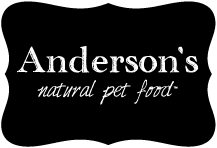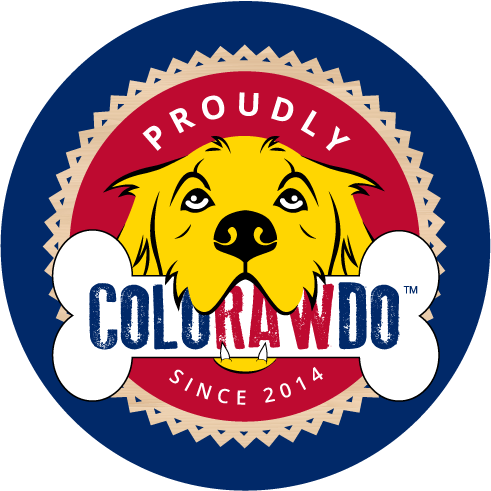
Food for Thought
Many have become comfortable with the domestication of our animals and many have forgotten that they are in fact, animals. Their bodies require a specific set of nutrients in order to function. A large majority of pet owners are feeding food to their pets without knowing what they are giving them. Check the ingredients section on your next bag of pet food and make sure you are providing the best nutrition possible for your pet. It may be time for a change. We like to provide a product that is straight from the source, giving your furry friends exactly what they need, and the opportunity for you to see exactly what’s in their food.
FAQ
The Wolf Diet
The closest relative to the dog in the animal kingdom is the wolf. Dogs and wolves share many similarities in their requirement for specific nutrients, their body chemistry and their physiologically. Adult wolves’ primary source of food is prey animals. Their typical diet consists of deer, moose, elk, caribou, bison, wild boar, rabbits, wild sheep, goats, horses, beaver, fish, eggs, and livestock. As well as, grasses, seeds and fruits. However, with all these proteins to choose from, wolves’ stomachs have been found to contain only one, or at most, two prey sources. With this in mind, your dog probably has a preference in proteins. We supply a variety of proteins to choose from. Dogs, like wolves, have similar digestive systems that are designed primarily for eating meat and the same stomach enzyme, pancreatic amylase, that digests vegetables, not carbohydrates. They also both have teeth designed for tearing meat from the bone and crushing bones. Wolves eat most of the carcass of their prey. So, we feed off that concept and provide blends with: 10% organ, heart, and liver; 10% fruits and vegetables; and 78% whole muscle tissue, with about 2% crushed bone, which is a source of calcium for your pet. That’s exactly what your pet will be consuming from our products. Allow your pets to independently choose what they want to eat and which protein makes them drool the most! Just like a wolf’s dinner, our meats and blends come in a variety of single-sourced proteins, packed with LOTS of nutrition, all bred, raised, and processed right in your COLORAWDO backyard.Complete & Balanced vs Intermittent & Supplemental Feeding Only What does it really mean?
AAFCO (American Association of Feed Control Officials) was established over 100 years ago. Only about 35 years ago AAFCO realized that commercially available pet foods were significantly deficient in health-sustaining nutrients, leading to the addition of synthetic vitamin and mineral pre-mixes in commercial pet food products. (1) This supplemental requirement was intended to meet the minimum nutritional requirements to prevent immediate illness and disease. Now, nearly 100 years later, there are still nutrients that AAFCO continues to attempt to establish satisfactory nutrient requirements for. (2) For example, Vitamin A, Vitamin D, Copper, Taurine and many more are all arguably improperly supplemented in pet feeds as AAFCO still attempts to define proper requirements. As science has not yet firmly established these numbers, old levels continue to suffice according to AAFCO standards. (3)To further compound the concerns of pet owners, there is a significant allowance for side effects caused by synthetic products. For example, the synthetic form of Selenium used in pet foods, Sodium Selenite, is 109 times more toxic than Arsenic according to its MSDS report. It has been proven to cause symptoms ranging from liver necrosis and target organ damage, to cancer, to death. (4) However, as long this “nutrient” is not used in excess it is acceptable to use it as your pets only source of dietary Selenium…. besides, who could identify Sodium Selenite as the cause of your pets disease or death when less than one grain of sand per 10 pounds of body weight per day is lethal?
There are 4 ways to gain an AAFCO “complete and balanced” claim on a product:
1) Add a synthetic vitamin and mineral pre-mix to the product. This blend contains “some or all” of about 25 synthetic vitamins and minerals, though a piece of broccoli contains over 8,000 nutrients. The MSDS for this product makes concerning claims such as, “containing hazardous ingredients exceeding 1% of the total mix… if one or more of the mineral ingredients in this premix exceed 1% of the total mixture, then the entire mixture must be classified as toxic according to 29 CFR 1910.1200(d)(5)(ii),” and “WARNING: MAY BE HARMFUL IF SWALLOWED. DO NOT TAKE THIS PRODUCT INTERNALLY…. These products are manufactured as animal feed additives. They are not for human consumption.” (5) Despite these statements, this pack makes a pet feed product adequate according to AAFCO standards no matter what the ingredients are in the product. One company went so far as to make a product from shoe leather, sawdust and motor oil to prove that with the synthetic vitamin and mineral pre-mix added it would pass as a “complete and balanced” food for pets… and it did. (6)
2) Expensive laboratory testing. If a company chooses not to use a synthetic pre-mix they must prove that their product meets the minimum AAFCO nutrient standards by sending their formula for laboratory testing. This is an expensive process as the product must be re-tested if the formula is found to be even only slightly inadequate in as little as one nutrient.
3) Feeding trials. A company can feed a set of at least 8 dogs exclusively their food for 26 weeks. 25% of the pets in the group are able to drop out of the study. The reason for removal from the study does not need to be reported. The remaining dogs cannot lose in excess of 15% of their body during the study. (7)
4) Compare the product to another that’s like it – yeah you read that right. If a company doesn’t want to go through any of the hassles of “complete and balanced” requirements, they are welcome to submit a claim that their product is similar enough to another “complete and balanced” approved product to be, itself, complete and balanced. This is acceptable though no testing, trial or verification is done beyond comparing labels.
What does it mean to be “for intermittent and supplemental feeding only”?
1) There is no synthetic vitamin/mineral pre-mix. This also means there is no toxic and potentially contaminated supplement in the product to cover up the inadequacies of junk ingredients in the product.
2) There was either no laboratory testing done or as little as one nutrient requirement was not met. In some cases this is not a problem because the manufacturers intention was to allow owners to be more interactive with the product. For example, some companies urge consumers to maintain a rotational diet. There are also cases where a company may of tested their products and determined that a certain nutrient is not available in adequate levels but they have not yet found a source for supplementation that they are ethically in alignment with. For example, Vitamin E is often sourced from Genetically Modified Soybeans and preserved with Propylene Glycol, an anti-freeze derivative. If a company is aware that their product must increase Vitamin E levels but they are unwilling to add a poor quality source of that nutrient to come into compliance, they may choose to label their product as “for intermittent or supplemental feeding only” because they value your pets health over a meaningless claim on their package.
3) There was no feeding trial – Feeding trials are very, very expensive and time consuming. In most cases, companies that bear the “for intermittent and supplemental feeding only” label are small, independently owned. They often began manufacturing quality products because of a passion for animals or nutrition… they felt there was a gap in the market that they could fill with a product that is higher quality than what they’ve found. These companies cannot afford to do large feeding trials that take months to finalize. While they may choose not do participate in feeding trials, they also tend to individually hand pick, hand mix, hand and package their products… this form of quality control and attention to detail is unmatched in large factory settings.
4) They can’t compare to other products – As stated above, most companies that bear the “for intermittent and supplemental feeding” claim entered the market to fill a void. They couldn’t find the quality they felt would be good enough for their own pets, so they chose to commit their lives and finances to making a product that provided for their own pets and other pets in the world with a quality all pets deserve. Therefore, quality manufacturers are not in any way attempting to make a product that compares to the mass produced Big Kibble products on the market that have caused such significant rises in diseases like obesity, diabetes, cancer, seizures, dilated cardiomyopathy and more.

